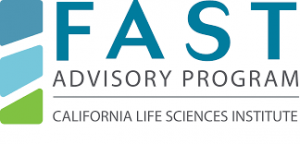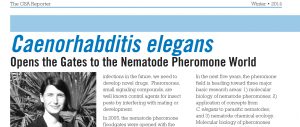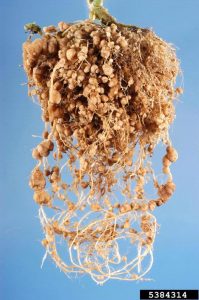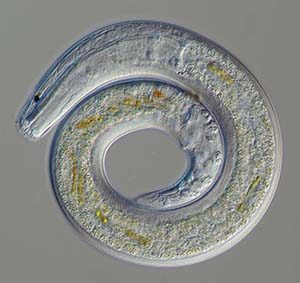Pheronym was awarded a USDA-SBIR phase I grant titled “Leveraging Nematode Signals to Enhance Entomopathogenic Nematode Efficacy for Pest Control“.

The SBIR partners include Dr. Fatma Kaplan at Pheronym (PD), Dr. David Shapiro-Ilan (Co-PD) at the USDA-ARS, Byron, GA and Dr. Ed Lewis (Co-PD) at the University of Idaho, Moscow, ID.
Project summary/ Abstract
The proposed project will test the feasibility of using nematode released factors to improve entomopathogenic nematodes’ (EPNs) efficacy (ability to kill) in biological control. Broad-spectrum synthetic pesticides have adverse effects on the environment and human health. For example, approximately 26 million human poisonings and 220,000 deaths occur annually due to synthetic pesticides worldwide. We need environmentally friendly non-toxic agricultural pest control. One of the solutions is to use environmentally friendly biopesticides such as EPNs. EPNs, natural enemies of insects, are used as biological control agents for many economically important insect pests such as the black vine weevil, Japanese beetle, Diaprepes root weevil, and fungus gnats. Furthermore, they are so safe to the environment and humans that EPNs are not regulated as pesticides in the US. One of the major problems with EPNs is their variable efficacy in the field. This is a major hindrance to EPNs’ wider adoption for insect pest control. One of the reasons for this variability is that EPNs clump together and do not disperse sufficiently in commercial aqueous applications. Recently, our group found that nematode released factors can disperse EPNs under laboratory conditions. The overall goal of this project is to demonstrate the feasibility of nematode factors to improve dispersal leading to the improved EPN efficacy. We will test the effects of adding nematode factors in laboratory and greenhouse assays with three different types of soil, and optimize exposure time to the nematode factors for consistent dispersal and infectivity.
The anticipated results and potential commercial applications of the proposed research: This proposed research will improve EPN efficacy as biological control agents, encourage wider EPN adoption, provide alternative pest control to the agricultural industry and farmers (organic and conventional) and reduce toxic chemicals in the environment. Once proven successful for two important model EPN species, we will expand this technology to other commercial EPN species with different and specialized insect hosts to improve their field efficacy. The potential for commercial application is enormous.

